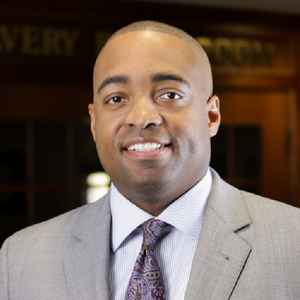
Budget & Tax , Economy
Jonathan Small | March 3, 2021
Use some bailout funds to reduce Oklahoma’s personal income tax
Jonathan Small
With Democrats holding Congress and the White House, most officials expect states to soon receive yet another round of federal bailout funding. That will translate into hundreds of millions of dollars flowing into the Oklahoma government.
Without doubt, that federal policy is wasteful and will encourage state governments to also be wasteful. But Oklahoma can make lemonade from these lemons. As federal funds slosh into our state, Oklahoma lawmakers should simultaneously use un-earmarked state funds to strategically reduce Oklahoma’s personal income tax.
That will put the state on a path to strong economic growth and job creation and make us more economically competitive with Texas, Florida, and Tennessee. The data make clear the single biggest advantage those three states hold over Oklahoma is that they do not impose a personal income tax.
Some officials at the Oklahoma Capitol understand taxes play a role in this competition, but there’s a temptation to focus on the state’s corporate income tax rather than the personal income tax. But the personal income tax matters most because, ultimately, business-location decisions hinge largely upon the impact to employees, their lives and livelihoods. People don’t work to pay taxes.
And, when job creators and company leaders who control where millions of jobs are located are being assaulted at the federal level, personal income taxes play an even greater role.
If you don’t think personal income taxes matter, recall that Oklahoma lawmakers, at the urging of state and local businesses, created a specific tax credit that often eliminates any personal income-tax liability for aerospace engineers. Business chambers and employees of aerospace companies said the credit was necessary if Oklahoma was going to compete with two states who are giants in aerospace, Washington and Texas, which have no personal income tax.
Also, since employee compensation most often is a valid expense that reduces dollar-for-dollar corporate earnings subject to tax, when companies make capital investments and increase all employees’ compensation, it rewards employees and protects against corporate income tax liability. But in states with a personal income tax, workers are penalized when a company provides generous compensation increases.
It should not be ignored that the personal income tax is especially punitive for entrepreneurs who launch start-up companies because small-business income is often subject to personal income tax, not corporate income tax.
Some will want to spend every dime available on state government growth. That will only put Oklahoma on a trajectory of unsustainable spending and ultimately result in tax increases, as we saw in 2018. And that will make the state less attractive for job creation, creating a downward spiral.
Instead, now is the time to act boldly and prudently. Now is the time to make Oklahoma not only competitive with Texas, but a place where long-term growth becomes the norm, not the exception.

Jonathan Small
President
Jonathan Small, C.P.A., serves as President and joined the staff in December of 2010. Previously, Jonathan served as a budget analyst for the Oklahoma Office of State Finance, as a fiscal policy analyst and research analyst for the Oklahoma House of Representatives, and as director of government affairs for the Oklahoma Insurance Department. Small’s work includes co-authoring “Economics 101” with Dr. Arthur Laffer and Dr. Wayne Winegarden, and his policy expertise has been referenced by The Oklahoman, the Tulsa World, National Review, the L.A. Times, The Hill, the Wall Street Journal and the Huffington Post. His weekly column “Free Market Friday” is published by the Journal Record and syndicated in 27 markets. A recipient of the American Legislative Exchange Council’s prestigious Private Sector Member of the Year award, Small is nationally recognized for his work to promote free markets, limited government and innovative public policy reforms. Jonathan holds a B.A. in Accounting from the University of Central Oklahoma and is a Certified Public Accountant.